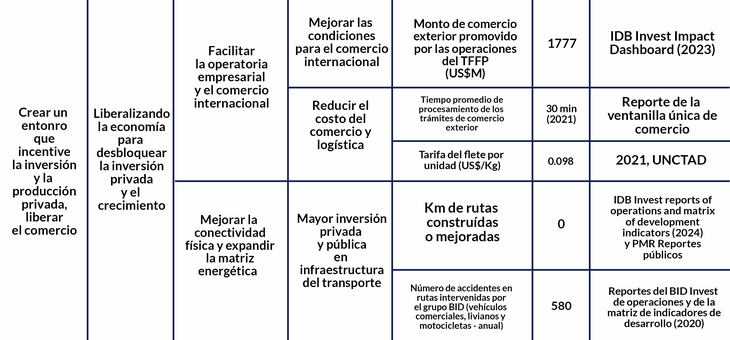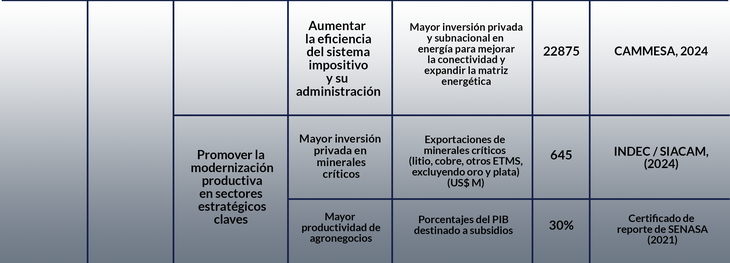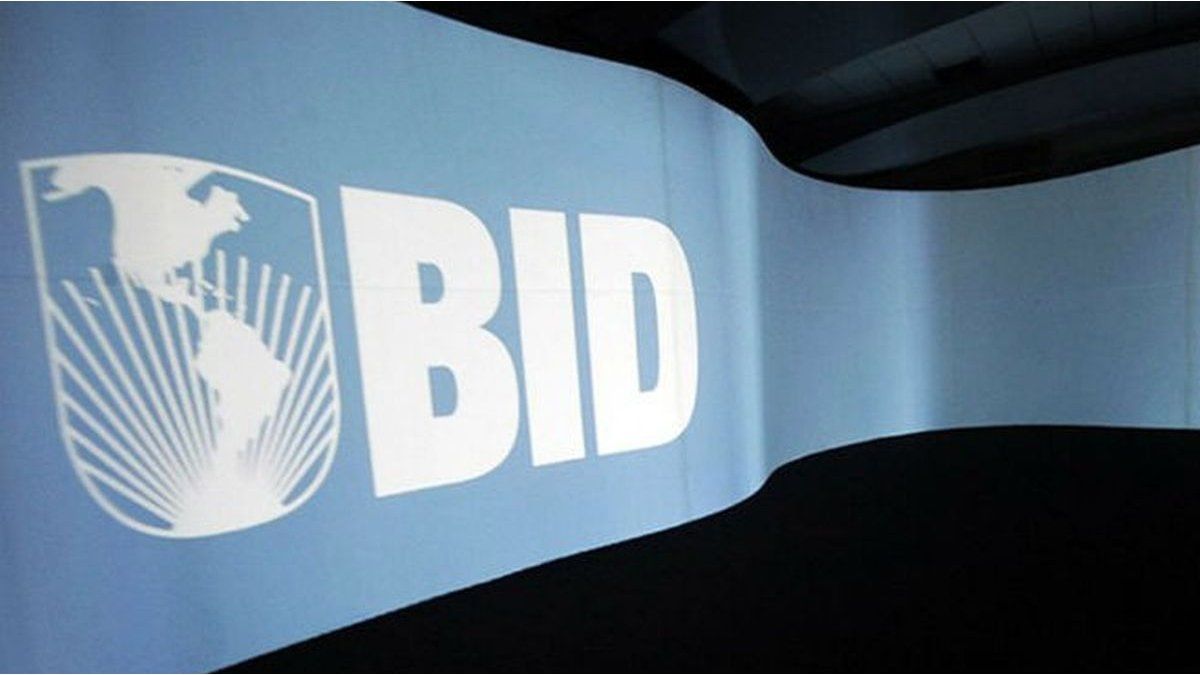The Inter-American Development Bank Group (Grupo IDB) approved the new country 2025-2028 strategy for Argentina. As announced in Washington, it is “a road map elaborated together with the Argentine government for Support the country to consolidate its transformation and strengthen a sustained and resilient development model, led by the private sector that contributes to the social and economic progress of the population, particularly the most vulnerable sectors. ” As part of this strategy, the Grupo Bid provides a financial support package for a total of US $ 10,000 million over the next three years.
Of that amount, the IDB will allocate U $ 7,000 million to support public sector initiatives, While IDB Invest will channel U $ s3,000 million to strengthen private investment.
The organism’s aspiration is for this year to specify 5 projects, including the improvement of access to transportation subsidies for more vulnerable sectors (in execution); Tax issues; PAMI procedures; the SDL approved together with the loan of the IMP (already specified) and the last one linked to improvements in competitiveness.
- Ingrain Fiscal reforms in favor of the sustainability and efficiency of public spending, also strengthening the Tax Administration.
- Advance in the Economy liberalization To unlock private investment and growth, promoting regulatory reforms, a productive modernization in strategic sectors, physical connectivity, the expansion of the energy matrix and the insertion in the global economy.
- Support the vulnerable population To reduce poverty, with emphasis on the improvement and strengthening of social protection systems, greater efficiency of the health system, development of fundamental skills for literacy and mathematical capacities, improvement of urban and health conditions and citizen security.
Commitment
“The country strategy 2025-2028 reflects our long-term commitment to Argentina. We will work together with the national government and subnational governments to promote a sustained and resilient economic growth led by the private sectorwhich contributes to the creation of quality jobs, poverty reduction and greater connectivity with high social return, ”he said Viviana Alva-HartIDB representative in Argentina.
“The approval of this strategy is A clear support for the priorities of the government of President Javier Milei: fiscal balance, economic openness and institutional strengthening. This support package of the BID group will contribute to consolidate the structural reforms underway and, to continue promoting a more dynamic and predictable environment for private investment, which is the true engine of sustained growth and the generation of genuine employment in Argentina, ”said the Secretary of Finance, Pablo Quirno.
The information of the multilateral organism realizes that, in addition, the strategy incorporates a transverse axis of institutional strengtheningaimed at improving the efficiency and transparency of the public sector, and to promote digitalization and innovation in public management.
The implementation of this strategy will be carried out through “a close collaboration between the IDB, which works with the public sector; IDB Invest, which supports the private sector; and IDB LAB, the innovation laboratory of the IDB Group. This synergy will allow maximizing the impact of interventions and promoting an environment conducive to private investment and inclusive development”.
Likewise, it was reported that the IDB will continue to support Argentina with financing, technical assistance and knowledge generation, aligned with the priorities of the country and with a vision of long -term development.
Pillars
To get Argentina to become a model of sustained economic growth led by the private sector, the program is supported by three pillars:
Reforming the system towards efficiency and sustainability
It is planned to work on the following objectives:
- Increase the efficiency of the tax system and its administration,
- Reduce tax distortions and improve collection efficiency;
- Improve the efficiency, equity and sustainability of fiscal policy, reducing tax expenditure, increasing the technical and assignment efficiency of public spending.
This pillar will focus on work with national and subnational governments.
Table 1
The pillars of the IDB plan: the reform of the fiscal system towards efficiency and sustainability.
Liberalizing the economy to unlock private investment and growth
The objectives will be:
- Support the design and implementation of reforms regarding deregulation and commercial liberalization that facilitate business operation and international trade;
- Facilitate and mobilize private financing for investments of both the private sector and subnational governments that improve physical connectivity and expand the energy matrix;
- Promote productive modernization and entrepreneurship in strategic manufacturing and agribusiness sectors.
Supporting the vulnerable population to reduce poverty
Although the recovery of growth and the creation of good private jobs is critical for poverty reduction, the impact will be much greater if chronic and multidimensional poverty are also addressed and poverty vulnerability is reduced.
The program in this problem will seek
- the improvement in terms of efficiency of social subsidies and health services,
- improve sanitary and urban conditions,
- expand the initial literacy level and
- Improve citizen security and criminal justice with strategies that aim to strengthen institutional capacities to prevent crime and violence that mainly affect the most vulnerable population.
- Strengthen the ability of people and communities to adapt and recover against social, economic, environmental and health vulnerabilities.
The BID group actions within the framework of this Pilar will focus on supporting the vulnerable population improving social protection, health, education and security and criminal justice. IDB Invest will seek to finance the expansion of health and health infrastructure. IDB Lab will focus on training and innovation in improving access to services, including justice.
Turning point
In the first chapter of the report entitled “Context and perspectives: a turning point towards stability and growth ”the situation of Argentina is analyzed. Namely:
Argentina is in a recovery process, but still faces relevant economic and social challenges
The fiscal consolidation process initiated in 2024 that led to reaching the first fiscal surplus after 14 years of deficit and the elimination of quasi-fiscal deficit of the central bank allowed significantly reducing inflation rates and, together with the crawling exchange exchange, anchored annual inflation expectations by 23% annually by 2025. However, the country still faces various challenges in economic matters, liberalization of economic matters, liberalization of economic matters. Capital account, the acceleration of private investment, and labor formalization.
The most significant social challenge is to lower the poverty rate, which has oscillated between 25% and 53% in the last 20 years
After praising the decrease in poverty of 52.9% in the first half to 38.1% in the second semester, however, the IDB warns that “the indigence rate remains high (18.1% at its highest point) and more than half of the children between 0 and 14 years are in poverty. On the other hand, the labor informality rate and the economically active population rate are located 36.1% and 48.8%, respectively.
Macroeconomic stability is one of the primary objectives of the coming years for the government
To do this, government prioritization is to maintain the financial tax balance reached in 2024. In parallel, the objective of the Central Bank focuses on continuing to improve its balance sheet, reestablish international reserves and liberalize change controls.
Table 1_00

The way to encourage a private investment and production.
In the previous context, economic stability and social equity and the development of the private sector are the great development challenges of the country
This objective requires to meet social protection and development needs of human capital, as well as reduce the obstacles facing the growth of productivity, entrepreneurship and the generation of formal jobs. Indeed, Argentina maintains a low innovation rate, located in eighth place in Latin America. Likewise, the number of goods exporting companies retreated from 14,444 to 9,567 in the last 14 years being particularly negative for productivity and labor formalization
The Argentine government agenda in the short term focuses on fiscal consolidation, reduction of distortive expenses and taxes, and the deregulation and liberalization of the economy to allow sustained growth
In the medium term, the economic development model is based on the deregulation of the economy and the realignment of relative prices that allow promoting private investment and formal employment, improving competitiveness, and international insertion. In turn, the role of the private sector will be emphasized in the financing of infrastructure investments throughout the country.
Table 1_01

The modernization of key productive sectors, one of the axes of the road raised by the IDB.
Source: Ambito




